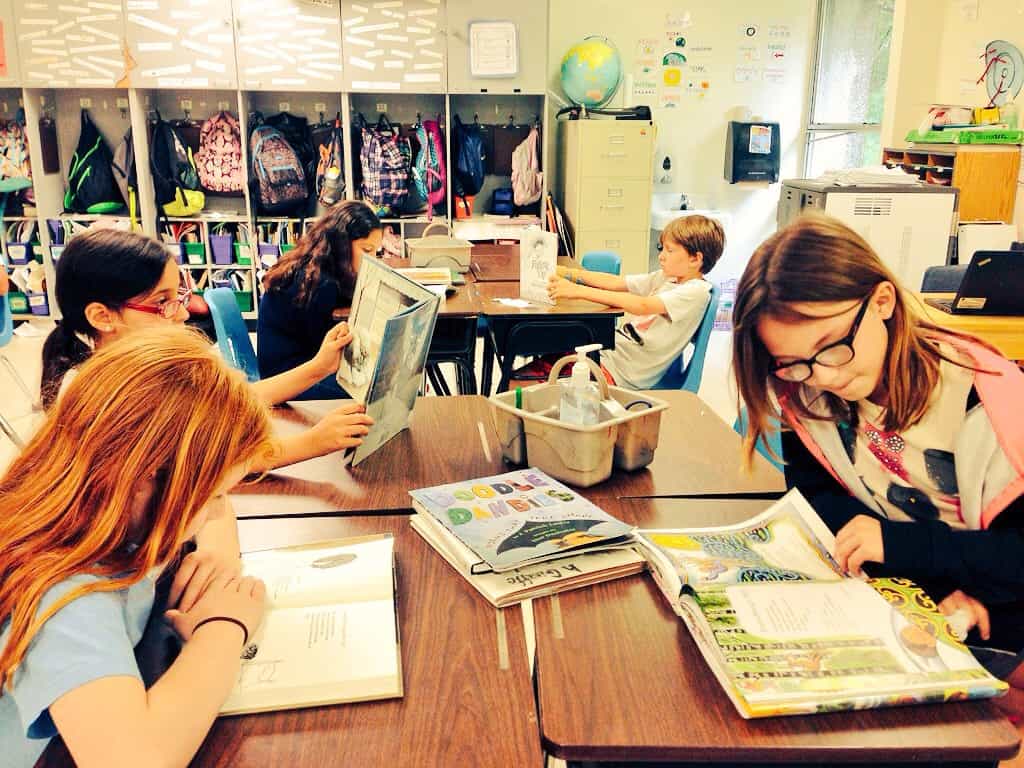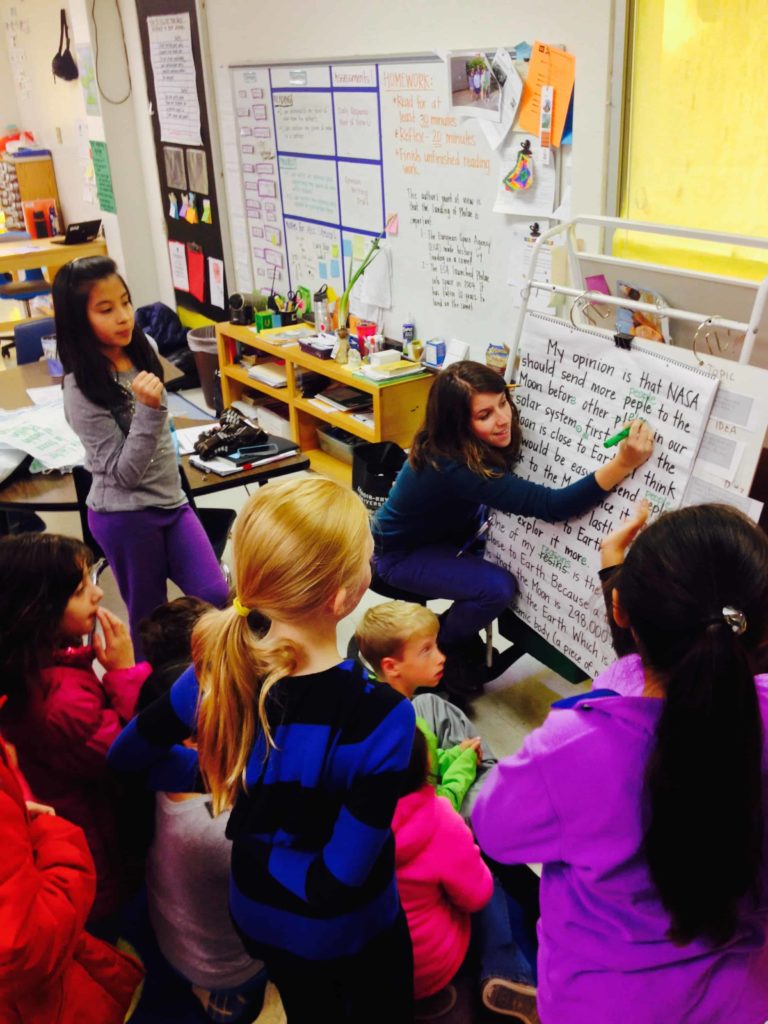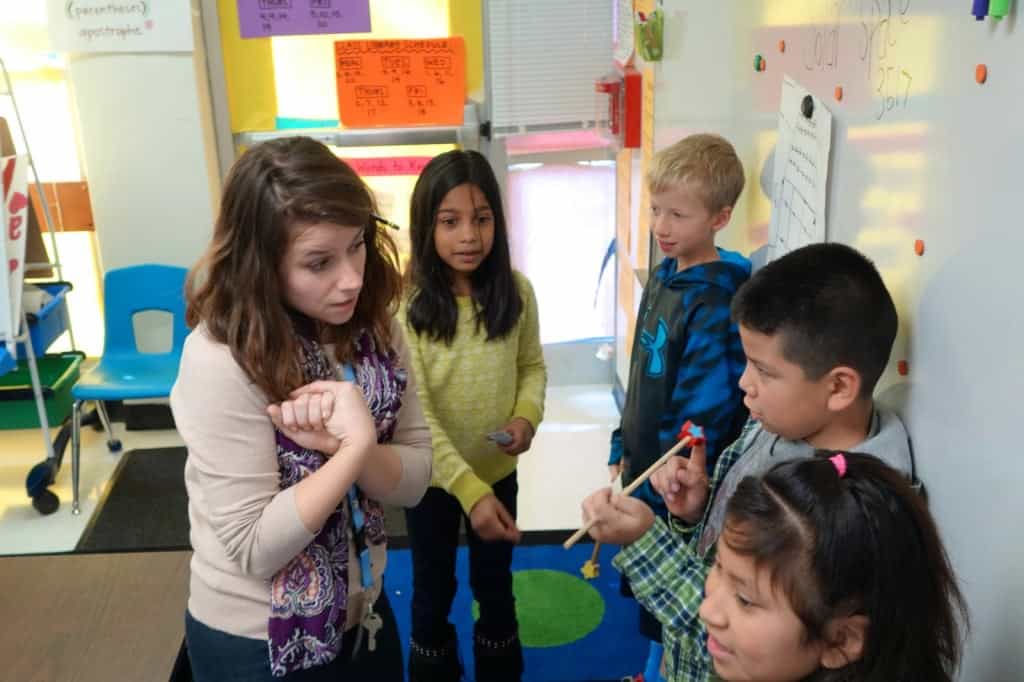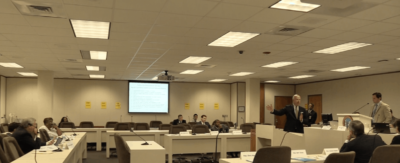
As a third grade classroom teacher, I have to say …
I don’t hate the Common Core.
I started my teaching career in 2012 when North Carolina began implementation of these standards, and in my time studying at UNC I had the opportunity to look at the old North Carolina Standard Course of Study side-by-side with the Common Core. All of the units that I wrote had to provide the old and the new standards, and it was staggering how different they were when looking at them this way.
There’s a lot of talk in the education world about getting students prepared for their futures, which is incredibly valuable. If we want high student achievement, we must not only adopt rigorous standards but ensure that our instruction is tied closely to those standards.
Standards-based instruction yields some benefits worth mentioning:
Students are able to build on what they’ve previously learned.
With our current standards for literacy and math, spiraling occurs throughout grade levels. What this means is that a child in kindergarten learns about finding the main idea with prompting and support from her teacher, but in third grade that same child will need to identify the main idea and key details to support the main idea, and then in fifth grade she will need to determine more than one main idea of a text with key details to support the main ideas and also summarize the text. Each year, grade level standards build off of the year before, so students have building blocks to work with as they learn new material. If every teacher is teaching with standards at the heart of his/her lessons, then students are constantly being exposed and re-exposed to similar concepts throughout their schooling.
Stronger connections between subject matter can be made.

My favorite thing about standards-based instruction is finding all the possible connections that can be made across subjects. I can pour over the third grade reading standards for informational texts and line those up with a science or social studies standard to enhance the teaching of that content. For example, when I taught my students their science topics about the solar system and forces, my students used nonfiction text features during our reading time to read about those science topics. This was great practice not only for the reading standard that needed to be addressed, but it also increased their knowledge about the science content.
Consistency is seen between schools and districts.
If a teacher in Charlotte-Mecklenburg is implementing standards-based instruction and one of her students moves to Orange County and has another teacher implementing standards-based instruction, then that child should have a very smooth transition. Between schools, if teachers have the standards at the heart of their lesson planning, then a clearer vision can be achieved of what works well and how schools and districts can improve. The door is also opened for learning from one another when teachers are on the same page with the standards and how to instruct using them.
I like pushing my students.
I like hearing them say that something is “too hard.”
I like watching them think and collaborate.
This happens often in my classroom and I believe I have rigorous standards to thank for that.

Rigorous standards, regardless of their name, facilitate deeper learning. If students are not challenged, they will not grow. The big movement to support student achievement in schools desperately needs standards that will push our students to think critically and collaborate with one another, and whatever the Academic Standards Review Commission chooses for the state of North Carolina, I need our standards to be rigorous.




